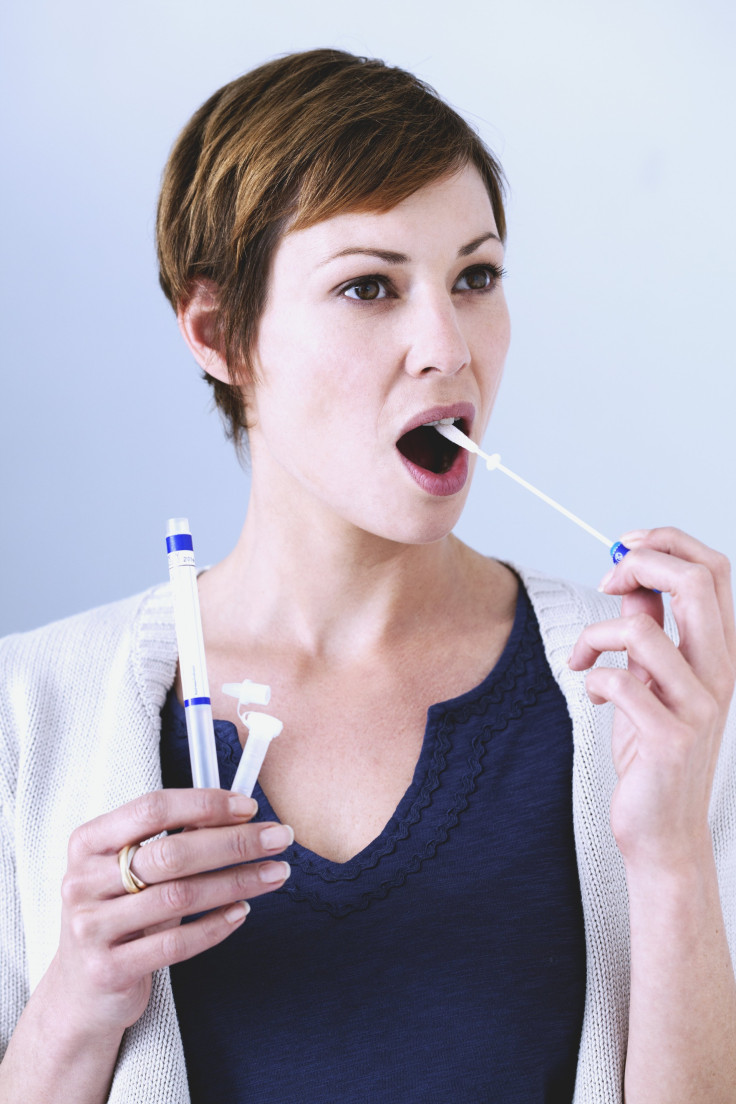Silicon Valley Startup Color Genomics Develops $249 Saliva Test For Breast And Ovarian Cancer

In Silicon Valley, startups appear to be taking charge in the medical and genetic testing world. A startup called Color Genomics will now be offering a $249 saliva test that will check for breast and ovarian cancer mutations, commercializing a test that was once limited only to women with cancer or a family history of it.
The saliva test kit would check for variants in 19 genes that are linked to a higher risk of breast or ovarian cancer, and would be able to screen for mutations in the BRCA1 gene — a gene that produces tumor suppressor proteins and helps repair damaged DNA. Actress Angelina Jolie found out she had a mutation in the BRCA1 gene, and chose to undergo a double mastectomy for preventive measures. BRCA gene testing is currently limited to women who already have cancer or have a family history of it, and insurers don’t cover BRCA testing for other women — but Color Genomics and other startups will soon be giving any ordinary woman the chance to get checked.
Jolie’s experience with genetic testing has spurred many more women to get screened for cancer (the “Angelina Jolie Effect”), and as a result has generated more interest in the genetic testing market among companies. Color Genomics in particular claims it is aiming to “democratize access to genetic testing,” offering it at a remarkably low price compared to many other genetic tests out there that normally range from $1,500 to well over $4,000.
After purchasing the kit online, consumers would receive it in the mail. Once they provide a saliva sample in the tube and send it back to Color Genomics, they would receive the results in four to eight weeks, after which they can discuss their results — however vague — with their health care provider.
But genetic testing hitting the mainstream is a cause for concern for some, who argue that low-risk patients don’t need to be tested. “People don’t understand that results can be ambiguous,” Debbie Saslow, director of cancer control intervention at the American Cancer Society, told Bloomberg. “If you don’t have any risk factors, nobody recommends genetic testing for the general population.”
This is where it gets confusing. According to the National Cancer Institute, not everyone who has a cancer-linked mutation gets cancer. Various other factors are involved, such as the pattern of inheritance of the mutation.
As a result, the National Cancer Institute doesn't recommend getting a genetic test outside of your doctor’s office (this was one of the reasons why the FDA shut down 23andMe in 2013). But Color Genomics is battling that by providing a doctor along with every order and test result.
Will genetic testing soon be readily available, and financially reasonable, very soon? It appears to be. But experts warn consumers to be aware that if their cancer risk isn't high, it might not be worth it: Results are ambiguous and may often cause unnecessary worrying.
Published by Medicaldaily.com



























